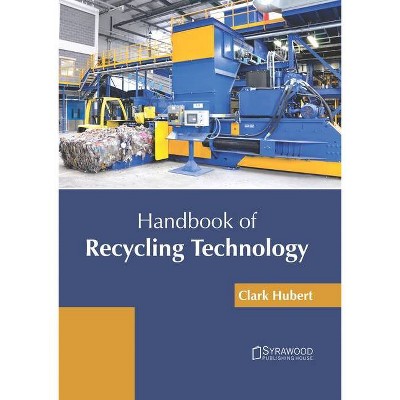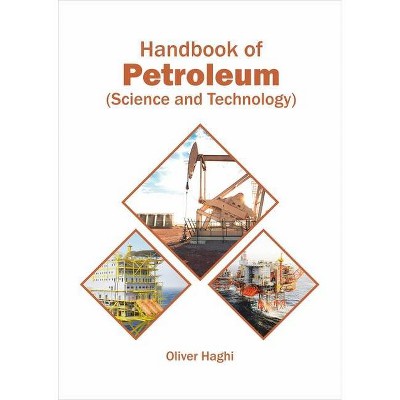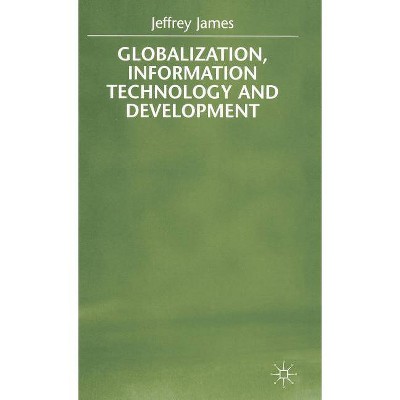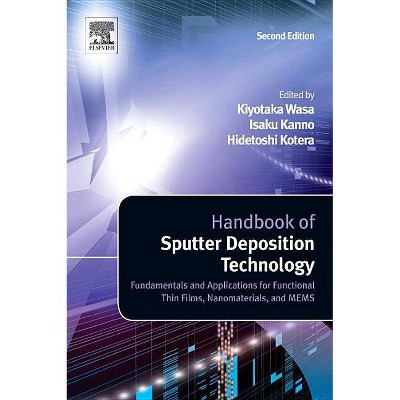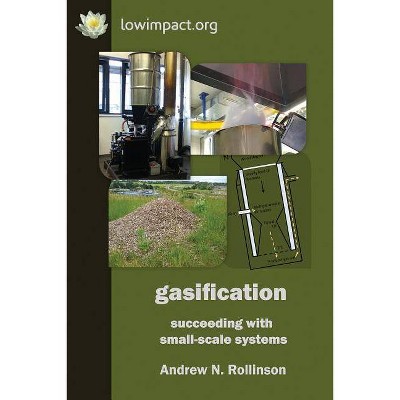Handbook of Gasification Technology - by James G Speight (Hardcover)
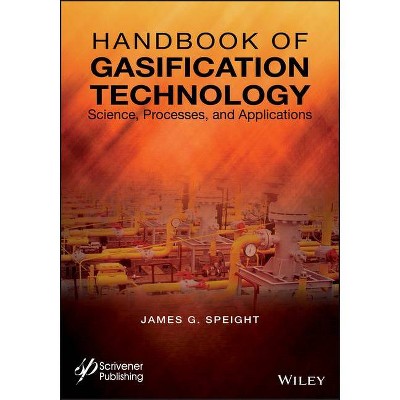
Similar Products
Products of same category from the store
AllProduct info
<p/><br></br><p><b> About the Book </b></p></br></br>"Gasification is one of the most important advancements that has ever occurred in energy production. Using this technology, for example, coal can be gasified into a product that has roughly half the carbon footprint of coal. On a large scale, gasification could be considered a revolutionary development, not only prolonging the life of carbon-based fuels, but making them "greener" and cleaner. As long as much of the world still depends on fossil fuels, gasification will be an environmentally friendlier choice for energy production. But gasification is not just used for fossil fuels. Waste products that would normally be dumped into landfills or otherwise disposed of can be converted into energy through the process of gasification. The same is true of biofeedstocks and other types of feedstocks, thus making another argument for the widespread use of gasification. The Handbook of Gasification Technology covers all aspects of the gasification, in a "one-stop shop," from the basic science of gasification and why it is needed to the energy sources, processes, chemicals, materials, and machinery used in the technology. Whether a veteran engineer or scientist using it as a reference or a professor using it as a textbook, this outstanding new volume is a must-have for any library"--<p/><br></br><p><b> Book Synopsis </b></p></br></br><p>Gasification is one of the most important advancements that has ever occurred in energy production. Using this technology, for example, coal can be gasified into a product that has roughly half the carbon footprint of coal. On a large scale, gasification could be considered a revolutionary development, not only prolonging the life of carbon-based fuels, but making them "greener" and cleaner. As long as much of the world still depends on fossil fuels, gasification will be an environmentally friendlier choice for energy production.</p> <p>But gasification is not just used for fossil fuels. Waste products that would normally be dumped into landfills or otherwise disposed of can be converted into energy through the process of gasification. The same is true of biofeedstocks and other types of feedstocks, thus making another argument for the widespread use of gasification.</p> <p>The Handbook of Gasification Technology covers all aspects of the gasification, in a "one-stop shop," from the basic science of gasification and why it is needed to the energy sources, processes, chemicals, materials, and machinery used in the technology. Whether a veteran engineer or scientist using it as a reference or a professor using it as a textbook, this outstanding new volume is a must-have for any library.</p><p/><br></br><p><b> From the Back Cover </b></p></br></br><p><b>Written by one of the world's foremost petroleum engineers, this is the most comprehensive and up-to-date handbook on gasification technology, covering every aspect of the subject, including energy sources, equipment, processes, applications, and the science of gasifying all types of feedstocks in an effort to reduce the world's carbon footprint.</b> <p>Gasification is one of the most important advancements that has ever occurred in energy production. Using this technology, for example, coal can be gasified into a product that has roughly half the carbon footprint of coal. On a large scale, gasification could be considered a revolutionary development, not only prolonging the life of carbon-based fuels, but making them "greener" and cleaner. As long as much of the world still depends on fossil fuels, gasification will be an environmentally friendlier choice for energy production. <p>But gasification is not just used for fossil fuels. Waste products that would normally be dumped into landfills or otherwise disposed of can be converted into energy through the process of gasification. The same is true of biofeedstocks and other types of feedstocks, thus making another argument for the widespread use of gasification. <p>The<b><i> Handbook of Gasification Technology</i></b> covers all aspects of the gasification, in a "one-stop shop," from the basic science of gasification and why it is needed to the energy sources, processes, chemicals, materials, and machinery used in the technology. Whether a veteran engineer or scientist using it as a reference or a professor using it as a textbook, this outstanding new volume is a must-have for any library. <p><b>This groundbreaking new volume: </b> <ul> <li>Lays the groundwork for understanding the need for gasification across all areas of the energy sector and how this technology can reduce our carbon footprint</li> <li>Offers a thorough and comprehensive description of the basic science of gasification technology</li> <li>Thoroughly covers the equipment and processes of gasification, including gasifier types, feedstocks, chemicals, and much more</li> <li>Is a valuable reference for engineers and scientists</li> <li>Is the perfect textbook for students studying petroleum, process, or chemical engineering</li> </ul><p/><br></br><p><b> About the Author </b></p></br></br><p><b>James G. Speight, </b> PhD, has more than forty-five years of experience in energy, environmental science, and ethics. He is the author of more than 65 books in petroleum science, petroleum engineering, biomass and biofuels, and environmental sciences. Although he has always worked in private industry which focused on contract-based work, Dr. Speight has served as Adjunct Professor in the Department of Chemical and Fuels Engineering at the University of Utah and in the Departments of Chemistry and Chemical and Petroleum Engineering at the University of Wyoming. In addition, he was a Visiting Professor in the College of Science, University of Mosul, Iraq and has also been a Visiting Professor in Chemical Engineering at the University of Missouri-Columbia, the Technical University of Denmark, and the University of Trinidad and Tobago.
Price History
Price Archive shows prices from various stores, lets you see history and find the cheapest. There is no actual sale on the website. For all support, inquiry and suggestion messages communication@pricearchive.us

